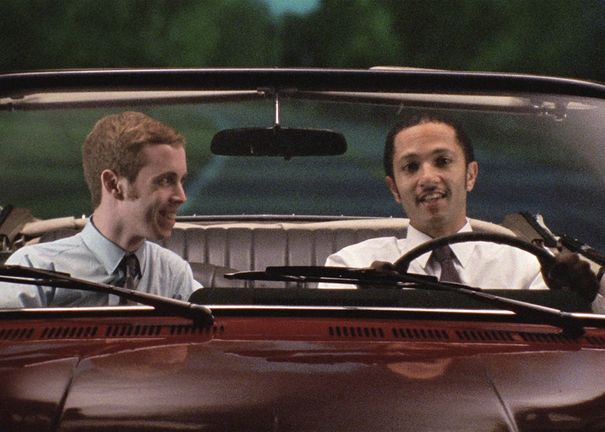On Location
Xin Zhou of the 2016 Berlinale Talent Press reviews Claudrena N. Harold's and Kevin Jerome Everson's Forum Expanded short documentary WE DEMAND.

Claudrena N. Harold's and Kevin Jerome Everson's WE DEMAND
On May 4th, 1970, in response to Richard Nixon’s invasion of Cambodia, four students at the Kent State University were murdered during the massive student protest in the United States. Situated in the context of the anti-Vietnam War movement, Claudrena N. Harold and Kevin Jerome Everson studied in Forum Expanded’s WE DEMAND one particular incident at the University of Virginia (UVA) where they both teach.
Mostly re-enacted by Harold and Everson’s colleagues and students at UVA, this 10-minute short docu-fiction was shot primarily from the perspective of James Roebuck. Just one month before the political outburst, Roebuck had been elected the first African American president of the student council at UVA and had mobilized the campus during the ten day revolt. This seminal experience turned out not to be an isolated chapter of his political activism but the blueprint of the politician to be.
While Harold provides a historian’s perspective towards this material, Everson’s contribution is more formalist. By choosing to re-enact and synchronize the scenes of the past in the present tense, the relationship between art and narrative becomes ambivalent. One scene features a conversation between Roebuck and Edgar Shannon, the then-current president of the UVA, who was upset about how the students were treated during the revolt. He delivered a letter that not only criticized Nixon but also the war and the politicians in the state of Virginia. The letter was fictionalized in the film as a conversation between the two characters in a road movie style.
During the post-screening discussion, the filmmakers related the surprise of the university community at the discovery of archival footage of the protest. Acts of civil disobedience were not typically documented by locals in the southern states. Such a revelation shows the impact of these filmmaker-activists who use their work to re-engage their community with the rediscovered materials of their political past.

